Bird-watching opens path to many possibilities
Growing interest in hobby leads to changes to lives, as well as to minds and habits.

Bird-watching, a hobby gaining significant traction in China, draws a varied crowd of enthusiasts, from dedicated scientists to retirees looking for an engaging pastime. Its appeal lies in the fact that it offers an enriching experience that is mutually beneficial to both bird-watchers and to their avian friends.
Liu Yang, a professor at the School of Ecology at Sun Yat-sen University and the deputy secretary-general of the China Ornithological Society, is one of the country's most accomplished bird-watchers, and has a sighting list of approximately 1,330 species.
Since childhood, Liu has been fascinated with studying the nests of house swifts, an interest that sparked his love for nature and biodiversity. During high school in 1994, he embarked on his birdwatching journey. While others were captivated by collecting stamps or matchboxes, Liu's interest was piqued by the unique characteristics of each bird. Hence, observing and identifying all the birds he saw and keeping a record, which is also known as a "life list", became his "small goal".
Merging bird-watching with scientific research has always thrilled Liu. In the summer of 2008, while collecting research samples at the Beishan National Farm in the Huzhu Tu autonomous prefecture in Haidong city in Qinghai province, he came across birds that looked similar to the Red-flanked Bluetail, a species that normally appears in the spring and autumn. Surprisingly, they were breeding. This discovery challenged established knowledge. Liu and his team collected and analyzed DNA and acoustic samples, leading to the recognition of two additional species, the Qilian Bluetail (T. albocoeruleus) and the Taiwan Bush Robin (T. formosanus).
"Even though I have seen over 90 percent of the bird species in China, I still encounter intriguing bird behaviors and phenomena in the wild that inspire further research," he says.
But research is just one aspect of his work. "Scientific research and popular science shouldn't be seen as separate entities. Your research questions stem from nature and life, and the results should be made accessible to the public," he explains.
As the author and editor of three field guides to birds, Liu has also written introductions to several popular science books on birds, and regularly gives lectures, helps review the annual report of the China Bird-watching Records Center, and advises the Bird Expert mini program on WeChat, which helps beginners identify species. He hopes his work is of benefit to both people and birds.
Liu commends the increasing volume of data collected by bird-watchers. "Many bird-watchers not only observe birds but also photograph them, using their cameras to document the birds' status and behavior, which plays a pivotal role in conservation," he says.
This statement encapsulates the journey of Wang Zhou over the last 10 years. As a prominent figure in Friends of Nature, one of China's earliest environmental nongovernmental organizations, which was established in 1993, Wang's birdwatching experience spans three decades. She has been mentoring novices in the field for over a decade.
Predator to protector
Back in the early 1990s, Wang had her first encounter with bird-watching as she accompanied her mother, who was a volunteer bird protector. At the time, Wang was working in the futures industry, specializing in risk control.
"The job was incredibly demanding, while bird-watching offered me a connection with nature, a form of aerobic exercise, and provided mental and physical relaxation," she says, reflecting on her past.
Consequently, she started engaging more in bird-watching activities.
Over time, she began participating in the organization's outdoor education programs, including setting up stalls to advocate for the concept of human-bird symbiosis in nature, and spearheading bird-watching excursions and avian surveys.
Currently, her China bird count extends to a list of nearly 900 species. Unlike some seasoned bird-watchers, she doesn't find mentoring novices tedious. "I'm not fond of solitary bird-watching. I enjoy the collective experience. It's an opportunity to learn from different people, and novices often have 'bird luck', leading us to discover a variety of species," she says, adding, "we can also subtly convey the idea of being friendly to nature to more people.
"People who go bird-watching may not comprehend the ramification of their actions on birds at first. For instance, when rare migrating birds are sighted, some watchers chase them, interrupting feeding and resting, potentially weakening or even killing them. So, it's crucial to raise awareness about harmful behaviors to prevent this from happening."
There was a time when the bird photography community had a tarnished reputation, with some individuals resorting to unethical tactics like using bait, trapping birds and using decoys to take appealing photos.
During bird-watching outings, it's quite normal to come across photography enthusiasts in parks armed with long lenses. Wang recalls there's one such individual who used to entice birds with insects. Whenever she encountered the man, Wang would engage in conversation. Eventually, he transitioned to being a wildlife conservation photographer. When the man saw people cutting reeds to attract birds in the park, he would alert park authorities.
"Many bird-watchers are also photographers. They can influence others who solely focused on taking pictures. Some of them start with photography and gradually get drawn into bird-watching, ultimately becoming individuals who both observe and photograph birds," Wang says, adding that she believes this is a growing trend in birdwatching.
Hearing the call
More retired bird enthusiasts have been making headlines, as in November last year when a number of them learned about the arrival of a White-capped Redstart at Beijing's Longtan Lake Park and gathered to take photographs.
After retiring, Zhang Fucai found that he had ample free time to indulge in his passion for photography. His subjects ranged from landscapes and flowers to birds, anything that caught his eye. The veteran, now 78, defies stereotypes of age. "I've ascended Huangshan Mountains solo, reaching the Guangming Peak for the perfect shot. Even the younger generation struggles to make the climb, often resorting to being carried in sedan chairs," he proudly recounts. "My family encourages me to venture outdoors, to stimulate my mind, breathe in the fresh air and interact with people, whether this involves sharing photographic techniques or casual conversation."
Zhang has dedicated nearly two decades to bird photography. He finds birds energetic and nimble, and particularly admires the elegance of a white egret in flight. He acknowledges that bird photography demands skill, up-to-date equipment, physical vigor and, above all, patience.
"A great shot often requires a lengthy wait. There are times when half a day or even an entire day passes without a glimpse of the desired bird," he says.
He is familiar with the species that frequent Beijing's main parks during different seasons and occasionally ventures to nearby cities in search of unique subjects. He occasionally accompanies younger bird enthusiasts on their outings.
"Due to my age, they express concern about potential incidents during long journeys and so they sometimes invite me on shorter trips."
Some individuals also visit bird blinds or bird ponds (or niaotang in Chinese), where they can stay hidden while observing and photographing birds.
"Throughout the bird-watching season, which extends from December to April, around 30,000 visitors come to our village's bird ponds. Retirees make up about 80 percent," says Ge Baozhi, the manager of a guesthouse in Baihualing village on the outskirts of Baoshan city in Yunnan province.
The diversity of landscapes in Yunnan provides a variety of habitats for approximately 1,000 bird species, both local and migratory, which contribute significantly to the area's ecotourism.
Acquiring knowledge of birds from his father-in-law, Hou Tiguo, the area's pioneer bird guide, Ge transitioned from a career in finance to bird-watching tourism in 2016. Now, apart from offering lodging and bird-watching guidance, he and the other villagers also do things like providing nature education and selling local specialties.
Birds offer much more than meets the eye. The practice of birdwatching resonates differently with different individuals. Over the past 10 years, Li Jieying, an educator at Qiming School in Guangzhou, Guangdong province, has taken around 30 students with vision loss on bird-watching expeditions, engaged in bird-related contests and taken part in bird-conservation activities.
"When guided to appreciate birdwatching, sometimes, students with vision loss will depend on the birds' songs to identify them," Li says.
Li explains that the students can distinguish approximately 30 common bird species, and that some of her students with a keen musical sense can even replicate bird calls with remarkable precision.
Her goal is to draw the children nearer to nature and she believes that they are not as reliant on assistance as might be presumed.
"The idea of bird-watching by people with vision loss might sound astonishing, and the children might question their ability to participate. But once they immerse themselves in the activities, they discover that they possess strengths their sighted peers do not," she says. "This gives them a sense of achievement and self-assurance, and demonstrates that their vision loss need not obstruct their abilities".
Chen Liang contributed to this story.
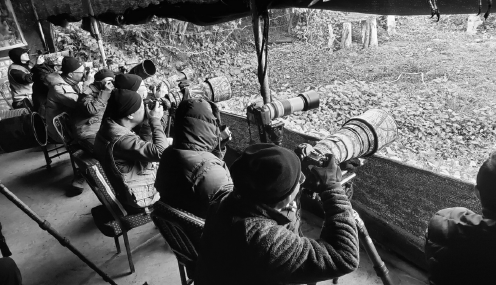
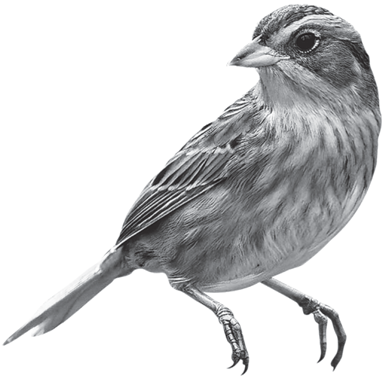
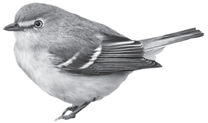



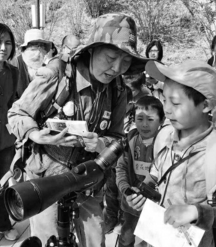
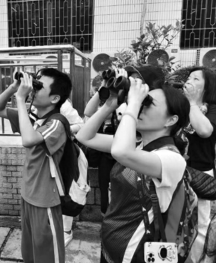
Today's Top News
- Xi pays tribute to fallen heroes on Martyrs' Day
- Experts report big boom in summer travel
- Mainland investors' trend to allocate assets globally on rise
- New LDP leader faces key challenge
- Former Brazilian leader hails ties, China's growth
- Workers called on to promote role model spirit































